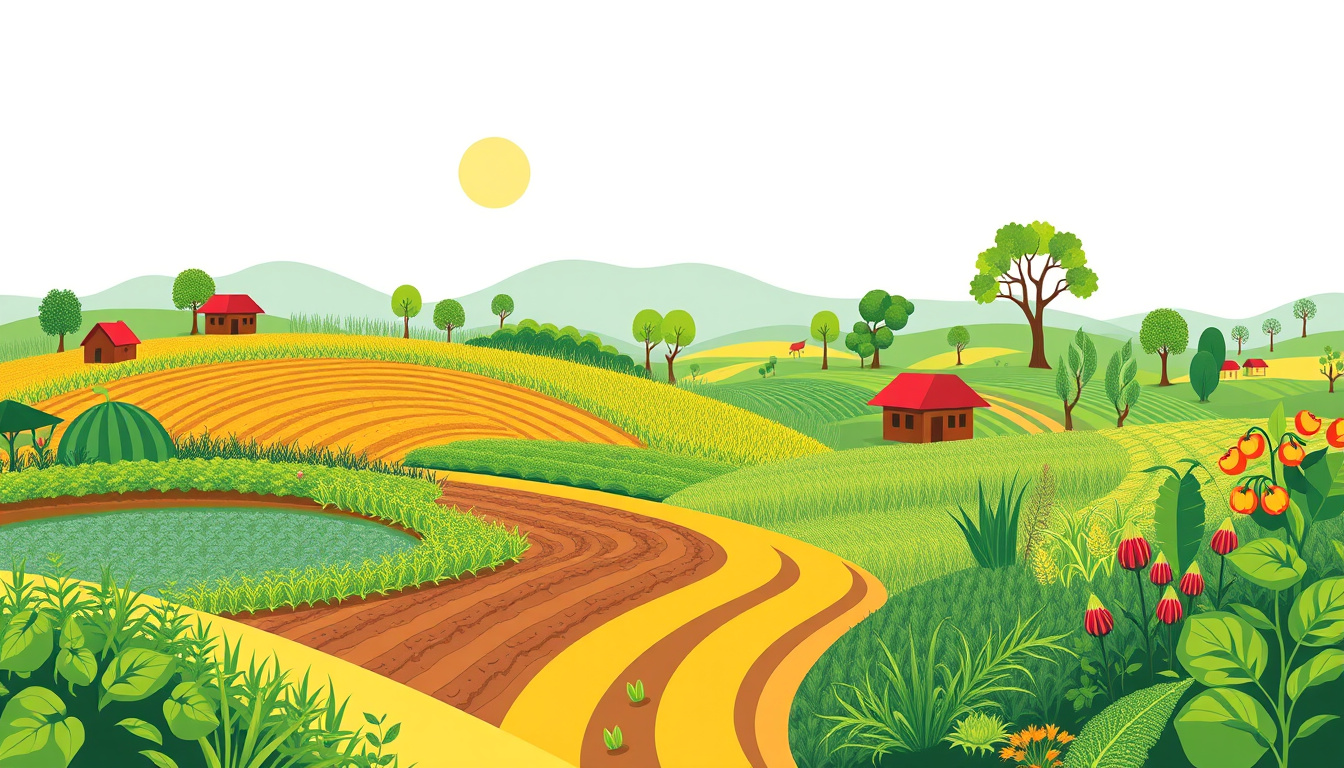Cultivating Sustainability: Unveiling the Environmental Impact of Organic Farming

Organic farming has garnered significant attention in recent years as a method of agriculture that emphasizes sustainability and environmental health. With consumers increasingly concerned about the use of synthetic chemicals in food production, organic farming has emerged as a popular alternative.
However, the environmental impacts of organic farming are complex and multifaceted, prompting a widespread debate among researchers, farmers, and consumers alike.
Understanding Organic Farming
At its core, organic farming avoids synthetic pesticides, fertilizers, and genetically modified organisms (GMOs). Instead, it employs practices that are designed to enhance biodiversity, improve soil quality, and promote ecological balance. The United States Department of Agriculture (USDA) has established guidelines to certify organic products, ensuring that they meet specific ecological and health-related standards.
Popular organic farming practices include crop rotation, cover cropping, and the use of organic fertilizers such as compost and manure. These techniques not only help to build soil health but also reduce the environmental impact associated with chemical fertilizers and pesticides, which can lead to water pollution and loss of biodiversity.
The Environmental Benefits of Organic Farming
- Biodiversity Enhancement: Organic farms are typically more biodiverse than conventional farms due to the variety of crops grown and the absence of chemical inputs. This diversity can create healthier ecosystems that support a wider range of wildlife.
- Improved Soil Health: The use of organic matter and natural amendments helps to improve soil structure, increase nutrient availability, and enhance the soil’s capacity to retain moisture. Healthier soil contributes to sustainable food production and reduces erosion.
- Reduced Chemical Pollution: By avoiding synthetic chemicals, organic farming minimizes the risk of chemical runoff into waterways, which is a significant problem in conventional agriculture.

The Controversies and Challenges
Despite the benefits, organic farming is not without its challenges. Some studies suggest that organic farming can produce lower yields compared to conventional methods. A significant issue arises when scaling up organic practices to meet the rising global food demand.
According to research, organic farming can require up to 40% more land than conventional methods to produce the same amount of food, which may have implications for deforestation and habitat loss.
Moreover, a 2018 study indicated that organic farms in specific regions, such as Sweden, could result in higher greenhouse gas emissions per unit of food produced compared to their conventional counterparts. Critics argue that without a balanced approach to food production that includes various farming methods, solely transitioning to organic farming may not be sustainable on a larger scale.
Navigating the Debate
The conversation about organic versus conventional farming often becomes polarized. Proponents of organic farming champion its environmental benefits and potential for sustainable agriculture, while opponents raise valid concerns about its scalability and efficiency.
The reality is that both farming systems have their advantages and disadvantages, and the context of agricultural practices significantly influences their impact.
Experts like Sonali McDermid emphasize that generalizations about farming practices can be misleading, as the efficacy and environmental impact of organic farming can vary widely based on local practices and conditions. For example, organic farmers in developing countries may employ practices that actually yield more food while conserving the environment.
Moving Forward
As we move towards a future where food demand continues to rise, the agricultural sector faces the daunting task of balancing environmental sustainability with food production needs. Transitioning to a more sustainable food system may require an integrated approach, harnessing the strengths of both organic and conventional farming practices.
To capitalize on the environmental benefits of organic farming while ensuring food security, stakeholders must focus on research and education that supports innovative agricultural techniques and better understands the complexities of different farming systems.
In conclusion, organic farming plays a vital role in the conversation about sustainable agriculture. While it presents numerous environmental benefits, we must also acknowledge its challenges and work towards solutions that incorporate diverse farming practices to create a more food-secure and environmentally sound future.
As consumers, understanding these dynamics empowers us to make informed choices about the food we purchase, ensuring that we support practices that not just nourish us, but also protect our planet.
We publish a quarterly magazine available in IOS, Android and Web reader. Stories and articles curated from amazing people all around the world.






